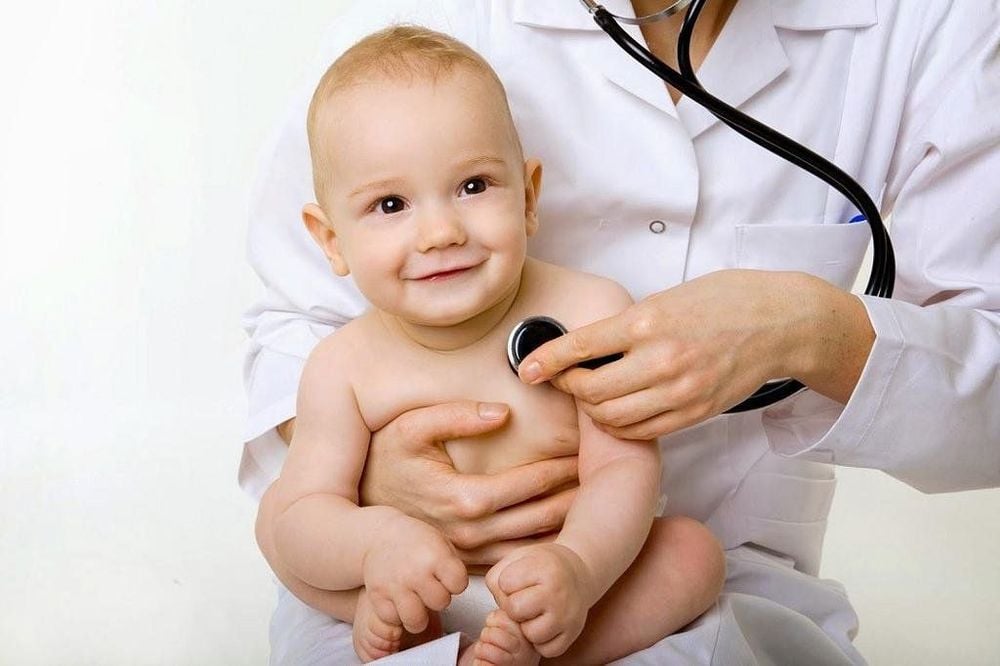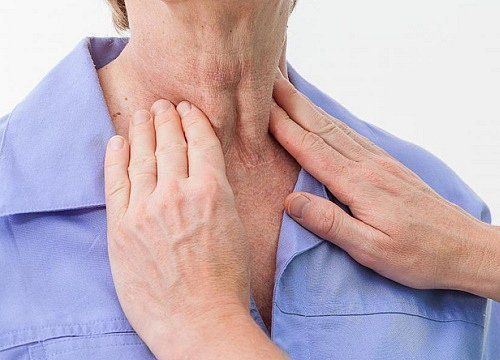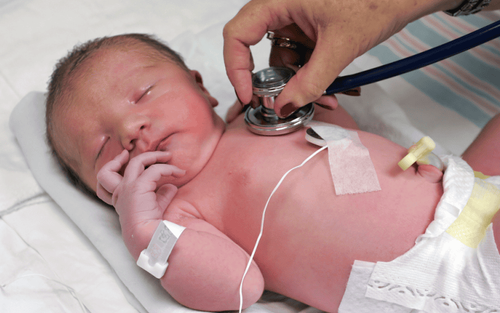This is an automatically translated article.
The article was consulted with a Doctor of Pediatrics - Vinmec Central Park International General Hospital.According to statistics, for every 1,000 babies born, there are 8 children with congenital heart disease. If not detected and treated early, the disease can cause serious health effects later, even death.
1. What is congenital heart disease in children?
Congenital heart disease in children (or congenital heart defects) are abnormalities of the heart that occur in the womb. Because the heart structure is defective, the function and activity of the heart is affected, blood circulation in the body works abnormally.Congenital heart disease in children is the most common form of birth defect and the leading cause of death from birth defects. Currently, thanks to ultrasound technology, congenital heart defects can be detected at 18 weeks of pregnancy.
Trắc nghiệm: Sự phát triển tinh thần, vận động của bé thế nào là đúng chuẩn?
Khi nào bé biết nói, biết hóng chuyện hay biết cầm cốc là "đúng chuẩn"? Điểm xem bạn biết được bao nhiêu mốc phát triển tinh thần, vận động "đúng chuẩn" của bé nhé!The following content is prepared under supervision of Thạc sĩ, Bác sĩ y khoa, Ma Văn Thấm , Nhi , Phòng khám Đa khoa Quốc tế Vinmec Dương Đông(Phú Quốc)
2. Two groups of congenital heart disease in children
2.1. Purple congenital heart disease
Tetralogy of Fallot is the most common disease in the group of congenital cyanotic hearts with typical manifestations of cyanosis due to inadequate blood supply.Tetralogy of Fallot is common with 4 types of heart defects: right ventricular outflow tract stenosis, ventricular septal defect, aorta "riding" up the interventricular septum, and right ventricular hypertrophy. Symptoms appear about 4-6 months after birth. Tetralogy of Fallot is often accompanied by a number of diseases related to chromosomal mutations such as Down's disease, cleft palate...
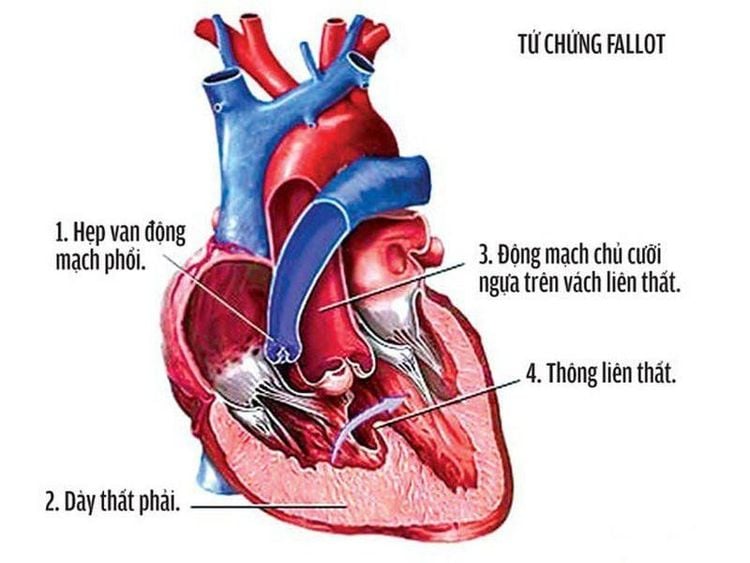
2.2. Congenital heart disease without purple
Non-cyanotic congenital heart disease is more common and less dangerous than cyanotic congenital heart disease, including ventricular septal defect, atrial septal defect, coarctation of the aorta, aortic or pulmonary stenosis. ...Many cases of babies with this malformation are not detected at birth because there are no specific symptoms. If the child has the following symptoms: Crying less than usual, not having enough strength to suckle, retarded physical development, worse is difficulty breathing and rapid breathing, the child is at risk of heart failure. Some children grow up to show symptoms of the disease.
3. What causes congenital heart disease in children?
Congenital heart disease in children has many causes, but in most cases it is difficult to pinpoint a specific cause. According to research, congenital heart can be caused by a number of reasons:Genetics
Heredity is an important factor in the formation of birth defects in children, especially heart defects. Children whose father, mother or close family member had a congenital heart defect are at a higher risk of developing the condition. In case the parents carry the disease gene, even if they do not have congenital heart disease, the child still has a high chance of having the disease.
Due to fetal toxicity
During pregnancy, if the mother uses certain drugs without a doctor's prescription, or uses stimulants such as alcohol, beer, or drugs, the baby is likely to be born with heart defects. natural.
Mothers who use stimulants during pregnancy can cause babies to have congenital heart defects can be toxic during pregnancy, leading to birth defects in the baby.
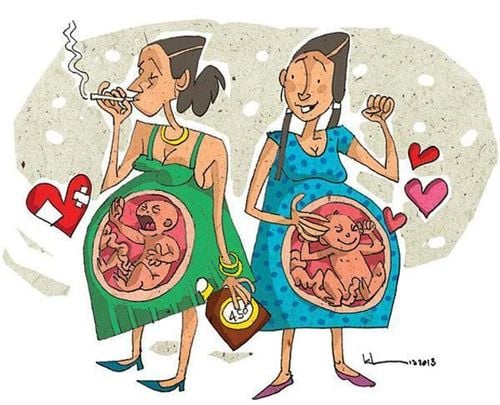
Mothers infected with Herpes, Rubella, Cytomegalo viruses, ... in the first 3 months of pregnancy will make babies susceptible to malformations, especially congenital heart disease in children. Maternal diabetes, lupus erythematosus during pregnancy can also lead to dangerous complications, putting the baby at risk of congenital heart defects.
Early signs of congenital heart disease in children
Congenital heart manifestations in infants include: Shortness of breath, rapid breathing, concave breathing, little feeding and continuous pauses when breastfeeding. Children who are a few months old or older will have more obvious symptoms: Frequent coughing, wheezing and pneumonia. In addition, the baby may have some accompanying symptoms such as physical retardation, pale skin, lips and toes, and fingers turning purple when the baby cries. Congenital heart defects can be accompanied by diseases related to chromosomal mutations such as Down, cleft lip, missing or extra toes... These cases need special monitoring for early detection and treat congenital heart defects if any.
There are also some children with congenital heart disease but have no obvious symptoms and are only discovered by accident when the child is taken for a health check or other medical examination.
4. Three methods of treating congenital heart disease in children

Using special drugs
For mild congenital heart disease, the health and development of the child is not affected much and surgery is not necessary, the doctor will prescribe a medications to regulate and stabilize the heart rate. This is the most gentle and minimally invasive method of healing.
Cardiovascular intervention (cardiac catheterization)
Doctors will insert a small and long tube through the outer blood vessels leading into the heart to make blood circulation easier, and at the same time, they can insert devices according to Monitor and assist in closing the holes in the heart in case of need.
This method has many outstanding advantages such as not having to open the sternum, reducing the risk of infection, fast recovery time... However, the cost is high and it can only be used to treat some abnormalities such as ventricular septal defect , aortic stenosis , pulmonary valve stenosis ...
Interventional cardiology is an advanced treatment method with many advantages
Heart surgery
In case it is not possible to intervene cardiac catheterization, doctors The doctor will perform surgery to close the openings, widen the pulmonary artery stenosis, narrow the coarctation of the aorta... Currently, there is a less invasive endoscopic heart surgery method to help reduce pain, reduce bleeding blood, quick recovery, less scarring. For severe cases that cannot be treated with other methods, doctors will suggest a heart transplant option for the patient.
Vinmec Central Park Hospital has performed most of the treatments for congenital heart patients, from simple diseases to the most complex heart surgery methods. The Center has successfully performed more than 200 surgeries in patients with congenital heart disease < 5 kg and with very complex malformations: transposition of the great arteries, right ventricular 2 outflow tracts, common trunk, arterial arc rupture. owner... thanks to modern diagnostic equipment, operating room and hybrid cardiac catheterization room as well as a team of experienced and highly specialized medical staff. Especially, ESP anesthetic technique replaces morphine in open heart surgery, which will help the patient to be painless during heart surgery and recover after surgery.
Customers can directly go to Vinmec Health system nationwide to visit or contact the hotline here for support.
5. How to take care of children with congenital heart disease? Because of their physical characteristics, children with congenital heart defects always need special attention and care.
Adequate vaccinations and periodic health check-ups are extremely important, helping children detect disease risks early to proactively prevent them.
Most children with congenital heart defects can live and participate in normal play activities. However, vigorous activities or competitive competitions are not suitable for sick children. Moderate physical activities such as swimming, cycling, walking, playing badminton, etc. will help children be more active and healthy.
If you have a need for consultation and examination at Vinmec Health System Hospitals nationwide, please book an appointment on the website for service.
Please dial HOTLINE for more information or register for an appointment HERE. Download MyVinmec app to make appointments faster and to manage your bookings easily.
